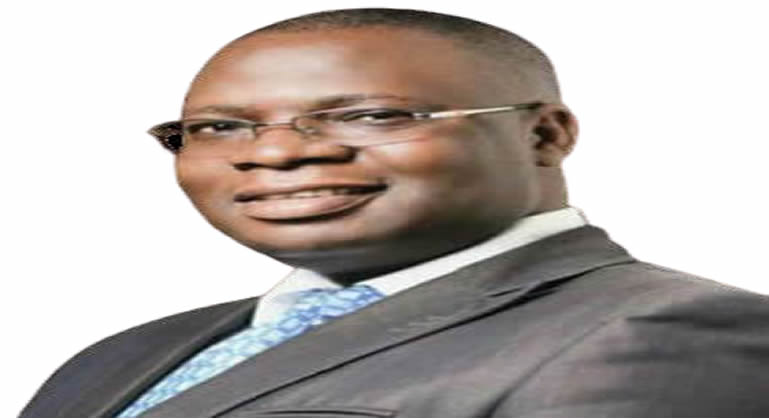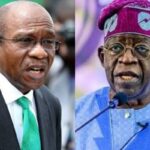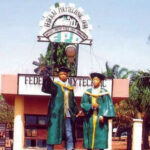
Former National Director of Legal and Public Affairs, Christian Association of Nigeria, Samuel Kwamkur, talks to JAMES ABRAHAM about the controversy trailing the comments credited to a former governor of Kaduna State, Nasir El-Rufai, in a viral video on the dominance of Muslims in Nigerian politics
Why did you criticise El-Rufai’s over comments credited to him regarding Muslim domination in politics in Nigeria?
To see a governor speaking like that confirms that fear. Also, I am a member of the Nigeria Inter-Religious Council. In that council, each time the issue of faith differences comes up, we have problems. Each time, some of our members, particularly the Christians, would want to raise the issue of Islamisation due to certain policies and practices of some Muslim governors or politicians. we had to struggle with it. Some of the Muslim leaders ask, “How is it possible that the country can be Islamised?” We argue it and sometimes we come to an agreement that yes, there is nothing practical to show that Muslims are working collectively to Islamise the nation. I see those leaders talking passionately, and convincingly, trying to show that truly, there is a need for us to move together if everybody will play his role.
So, if I hear a national leader, like El-Rufai, speaking in such a contradictory manner, I feel that I have a duty to respond to him. Again, I worked for the Tinubu (presidential) ticket, not forgetting the fact that I’ve had a lot of Christian leaders working against it, telling the followers not to support it because of (a possible) Islamisation agenda. In this country, we’ve always had a Muslim-Christian ticket, and a Christian-Muslim ticket, and we have worked like that as a nation. To come to the point that you are having a Muslim-Muslim ticket, it’s something that tried to draw the attention of the Christian leaders to feel that truly, this is an Islamisation project, especially with what El Rufai did in Kaduna State.
What do you mean?
He (El-Rufai) was one of the examples that Christians were carrying around because you know that Kaduna State has been having Muslim-Christian as governors and deputy governors. And for a long time, they’ve been going that way. But suddenly, he (El-Rufai) came, and he proudly said that he wanted a Muslim-Muslim ticket. Somehow, he won the election. Now, again, another reason is that in the political setting, we have people of all manner of faith in each political party. I can’t imagine how a national leader like him who has contested an election twice and won will be speaking like that. I saw him as slapping the faces of those Christians that worked for him to become a governor. You know, it’s like knocking those Christians that worked for him to become a governor.
As a legal practitioner and an advocate, who speaks for the rights of the less privileged, I found it a duty to remind the former governor that he didn’t deceive anyone. Those that worked for him are not foolish. He’s making us fools. We worked for a Muslim-Muslim ticket because we wanted a peaceful nation. We worked for it because we wanted to move together and show you that if everybody takes his religion, the nation would be torn apart. So, the people will sacrifice for each other. We did not do it out of ignorance. Some people had responded, asking whether we had just woken up. No! Some of us are aware of what is happening in this country; we’ve been following it for years. We know Nigeria; we know the sentiments of the people. So, we know that there are very highly sentimental Muslim leaders who believe it is only when Muslims are ruling that the nation will be saved. There are Christians who feel Muslims shouldn’t be dominating. But there must be somebody that will stand in the centre to pull the strings together. I feel that I’m one of those that have done that and still doing that today and tomorrow. So, I felt I had a duty to speak out against utterances against the unity and progress of our country.
Many people have tied the former governor’s utterances to the killings in Southern Kaduna, which is predominantly a Christian community. Do you think El-Rufai did his best to address the killings?
How can he say he did his best? But you heard him telling the gathering that he used Agaji, that is, the Islamic boys’ brigade or boys group to protect votes. So, you can see that if somebody who cannot even have confidence in the electoral process is going to the Islamic body to get Islamic militants to protect votes, it’s beyond him to provide leadership. Can you mention how many times he called certain meetings where he tried to talk to the people compassionately over the series of killings in his state? I think he didn’t do much if he did anything at all to de-escalate the killings in Kaduna State. I’ve always said this as somebody who has also been in government that no governor will allow his people to be killed, but I will now say no reasonable governor will allow his people to be killed. I will use the word, “reasonable,” because we have had crises, religious conflicts, in Plateau State, but even during the time of former governors Jonah Jang and Simon Lalong, each time you see the governors, you see them struggling with the security agencies to protect the people. You will never hear them making certain utterances that will increase the crisis, but El-Rufai will not do that.
But it has also been argued that there were killings in other parts of the state and that Muslims had been victims too. How about that?
I am surprised that he (El-Rufai) keeps thinking that he’s fighting a cause against Christians. Let me also tell you again, that in the course of my work, in the interfaith programme at NIREC, we have had Muslims and Christians. When you read the news, people are being attacked in Kano, Sokoto, and Zamfara and other states but you can’t say the victims are only Christians. But you see your attitude towards what is happening is what defines the reality of what goes in your mind. So I think largely, there are Muslims that are not happy with El-Rufai, to be very honest.
Even after the press conference I had before this interview, I got a call from some Muslims in Kaduna, who agreed that what I said there was an element of truth. So there are people that are also not happy with the way he goes about it. When there is no peace, nobody is at peace; Muslims become victims, and Christians become victims. So, I think that it should not be anybody’s desire that people should die based on religion.
Many people believe that NIREC is not doing enough to douse religious tension in the country. What is your response to that?
How can NIREC be seen to be doing enough when the people who are seen as the core stakeholders and whose support is needed to help in certain issues are also complacent like El-Rufai? But to be honest, I will tell you that NIREC has done a lot. NIREC has gone to different states. There was a day people were attacked and there was almost a crisis. We were in a NIREC meeting and I whispered to the co-chairman of NIREC that Plateau State was not safe, that there was a problem in the state, and that there was a need for them to come and see our people. It will interest you to know that all of them – the Sultan of Sokoto and the CAN president agreed and made an arrangement to go to Jos. They visit Jos with the Secretary to the Government of the Federation to address the Christians and the Muslim leaders.
NIREC has also handled the case in Rivers State. It has also drawn our attention to the fact that a crisis is not just about religion. We know that people take advantage of the religious platform to get at one another. But the truth is that what is happening in Nigeria is a high level of criminality complicated by complacent leaders. I’ll tell you that there are people in the government that make money from crises. There are people in the security circle that make money from crises. Some people capitalise on them.
Some people argued that the governor of a state in the North should not be criticised for saying it is a Muslim state since some of their counterparts in the South, like a former governor of Rivers State, have said the same thing. What do you make of that?
There is a whole world of difference; they are not the same. But let me tell you, before former governor (Nyesom) Wike made that statement, we had (former) governor (Ahmed) Yerima who declared Zamfara State as an Islamic state, and other governors in the North who also declared their states as Islamic states. Nigerian politicians like taking advantage of religion. That’s what I will say. It’s not that when they make such a declaration, it has anything attached to it. When Yerima declared Zamfara State as an Islamic state, people misunderstood him and started killing and attacking Christians; they started burning places. Other states started too. Then not long after, Boko Haram also came in and Christians and Muslims were killed. So at the end of it, it was not for anybody’s gain.
What I’m commenting on is not just about the statements of El-Rufai but I’m talking about what is also happening as per the actions of the people. That’s even another thing that complicates the issue. Can you say that there is peace in Kaduna? Is it true? No, I don’t think so.
Do you think El-Rufai caused any upset with his comment and should be invited by security agencies?
I think that there will be no harm if he’s invited, even though I know Nigeria; I’ve been in this country. When you see somebody boasting like that, you know, in this country, sentiments override the rule of law, sincerity, fairness, and justice. I know it. I’ve been in this country. I know that you can hardly find good people. If you are a good person in this country, you are in danger. And there are a lot of good people that are hiding. They’re pretending just to survive because (some think) they are the ‘dangerous’ people and they can even set them up. So a good person, a righteous person is more endangered than a criminal. That’s the unfortunate situation in Nigeria today.
Truly, I expect that he should be invited and questioned as to why he should be making those kinds of statements especially as to the security of his state. Politically, he can say what he likes. Yes. He’s a religious man. Besides, they call him mallam. So, he is a religious man and he can say anything he wants to say. But I think that on the matter of security, especially that of his people, as one who has been in the government, his words, and his activities should be checked, especially now he has given a clue as to why those killings have continued in his state.
How best can the ethnic tension in the country be de-escalated?
Those in governance should be transparent and fair to the people. You shouldn’t be saying something differently, and doing something differently. We need credible leaders in authority. We need people that know what this nation wants. What have you done in your capacity as leader that you want people to entrust you with another responsibility? And I think that’s one of my reasons for supporting President Bola Tinubu. To be very honest, during this time when he was a governor, there were a lot of testimonies of how he developed many parts of Lagos. And the pictures are there, the people are there to say it. If you look at the growth of human capital development, again, many people were empowered. If you look at mentorship and governance, you also see many people were mentored and developed. Now, if you see such a leader, even though I’m fearing that people like El-Rufai may corrupt him, I think there is no reason to fear such leaders being given an opportunity.
Secondly, we in the religious setting, too, also need to be sincere to our people. The hate speech is too much. The messages we preach need to be checked.
The Christian Association of Nigeria opposed the Muslim-Muslim ticket of the APC. Has the association moved on, since the party won?
The first thing I will say is that CAN took the decision not to support a one-faith ticket, not a Muslim-Muslim ticket alone. CAN said it would not support a Christian-Christian or Muslim-Muslim ticket. we need a balance. We need a nation where everybody will be represented. And I have always said that the reason why we do this is because of the sentiment of people like El-Rufai; we know this, everybody in this country knows except we are pretending. So we needed a balance.
What do you think is responsible for the killing in Plateau State where you served as a special adviser?
When I was discussing the Kaduna challenges in terms of insecurity, I said Plateau was not an exception. Benue is not an exception too. There are many other states, particularly in the middle belt region. In the North generally, a lot of states are being attacked. Now, the first thing I have noticed is that there has been a rise in criminality generally in this nation. And I will say that it was due to our carelessness from the outset that these things are happening. You know, when democracy came, a lot of people felt it was an opportunity to dominate. So I will say that for some years, we’ve allowed criminality to stand, because of tribalism, religion and sectionalism.
So, I will say that the problem is not just about who becomes the governor. I was with (a former governor of Plateau State, Jonah) Jang, and there were killings, even with Lalong, though he tried. The killing was reduced to some extent. But again, you see it coming up. Again, it’s not about the governor. It’s not about who is there, you can see commitment from them. But you are dealing with criminals that have also developed a structure. So again, you will find out that when you are battling with these criminals in the state, those at the national level who control the security may not even be cooperating with a governor who is at the state level. I have discovered that myself while in the government. One security chief told me in confidence that there was a time they were going to attack some terrorists with a helicopter and then they got a call to return the aircraft and not attack the people, so they had to go back. He said that it was an order from above. It means that those criminals are making telephone calls to (people in) Abuja. So unless all of us will collectively agree that we want these things to end, and resolve to do it better, the end may not be in sight.





